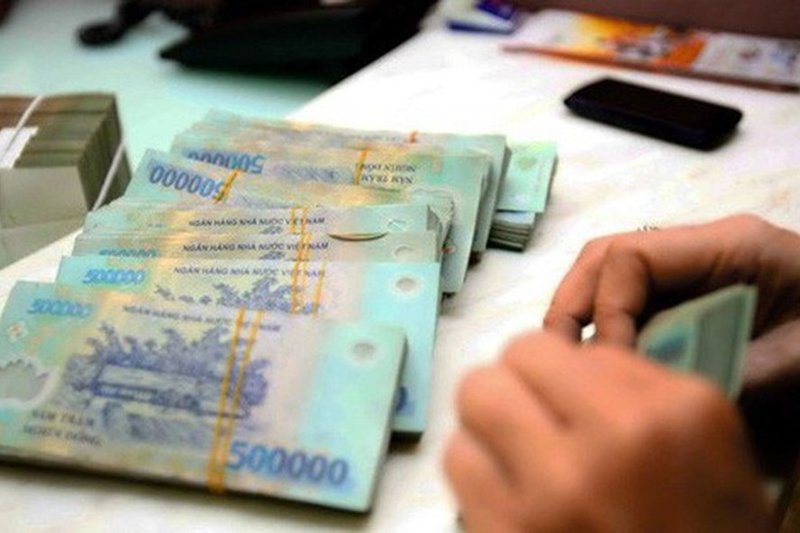Vietnam’s credit-to-GDP ratio on par with OECD countries
Such comparison suggests that the development of the banking sector may have been too rapid compared to the size of the economy.
Vietnam has the highest credit-to-GDP ratio among the lower middle-income countries and is at par with some of the OECD countries, according to the World Bank.
| Illustrative photo. |
These comparisons suggest that the development of the banking sector may have been too rapid compared to the size of the economy, stated the World Bank in a report titled “Finance in Transition”.
Both economic theory and empirical evidence demonstrate that economic growth and financial markets development are closely interconnected.
Such correlation is also apparent in the recent history of Vietnam, as the rapid economic growth reported over the past 25 years has been accompanied by a surge in banking credit from 17% of GDP in 1996 to over 130% in 2018.
Such a rapid development of the banking sector, albeit beneficial, has arguably created some challenges that may prevent the emergence of a dynamic private sector.
The first challenge is that the allocation of credit by banks has traditionally been biased toward the public sector, including SOEs, which accounts for a significant share of total credit in the banks’ portfolio.
More recently, a disproportionate share of credit has been directed to real estate and housing, and to a lesser extent to durable consumer goods (for example, cars). These two categories have crowded out the credit available for private firms, particularly small and medium-sized enterprises (SMEs), which today represent only a marginal share of the credit market in Vietnam. The provision of long-term credit to firms is further constrained by the short nature of deposits (over 80% are one year or less) and by relatively high transactions costs due to the lack of information, weak collateral, and the poor functioning of the justice system.
The second challenge is that the financial market is highly concentrated around banking sector credit. Instruments such as bonds and equities finance approximately 40% of activities in Vietnam. When contrasted with other countries in the region, such as Thailand, the Philippines, and Indonesia, the size of the local bond market and of the market capitalization of listed companies is low despite rapid progress since 2011.
Five areas to focus on
The WB, therefore, suggested five areas the Vietnamese government should focus on.
Firstly, modernizing the legal and regulatory foundation of the capital markets. A strong and stable regulatory and legal framework and efficient market infrastructure are fundamental to provide market participants with the confidence to enter the market.
Among priorities are the revisions of the Securities Law and its implementation, as there is an urgent need to improve market and disclosure policy, conduct of market participants, institutional and operational arrangements, and market infrastructure to meet international standards.
Secondly, improving governance and information dissemination. A significant challenge in Vietnam is to build a robust credit culture where risks are measured and priced objectively through a high standard of information disclosure.
Exposure to the corporate bond market remains extremely limited, in part due to the current lack of transparency and information available to prospective investors, but also due to the lack of sufficiently high-quality analysis.
Credit rating agencies are needed to ensure that financial markets can function adequately, and bond issuances could be rated and priced accordingly. Ultimately, accessible and reliable information regarding the markets and the securities issued is necessary to increase investor confidence.
Thirdly, broadening the investor base. Broadening the investor base, especially non-bank investors, will be key to the development of capital markets. A broader and diverse investor base is important not only to sustain market growth, but also to increase liquidity and reduce volatility.
An upgrade to emerging market status in global stock and bond indexes will also attract international investors to Vietnam and support sustainable growth of the markets and diversified participation in the markets. Thus, reforms to support this effort must be prioritized.
Fourthly, developing innovative products. Demands for long-term financing, particularly for infrastructure, will remain high as Vietnam continues its current growth trajectory, with rapid urbanization. Debt leveraged by banks is often insufficient to amortize infrastructure projects. Moreover, banks are unlikely to meet the full extent of this growing demand for long-term financing, due to the liquidity and capital constraints and maturity mismatches such lending would entail. In this context, new types of instruments—such as infrastructure bonds, asset-backed securities (including for mortgages), and other structured instruments are necessary to support infrastructure financing and other longer-term investments in Vietnam.
Fifthly, strengthening the government’s role in building blocks for the development of long term finance. Given the weight of government bonds in emerging capital markets (more than twice the size of corporate bonds in Vietnam as of mid-2019), the way that the government conducts its operations exerts influence on multiple parameters such as maturities, liquidity, and risks. By improving the liquidity across the yield curve, it can create a reliable reference that can be used by other issuers from the corporate sector.












